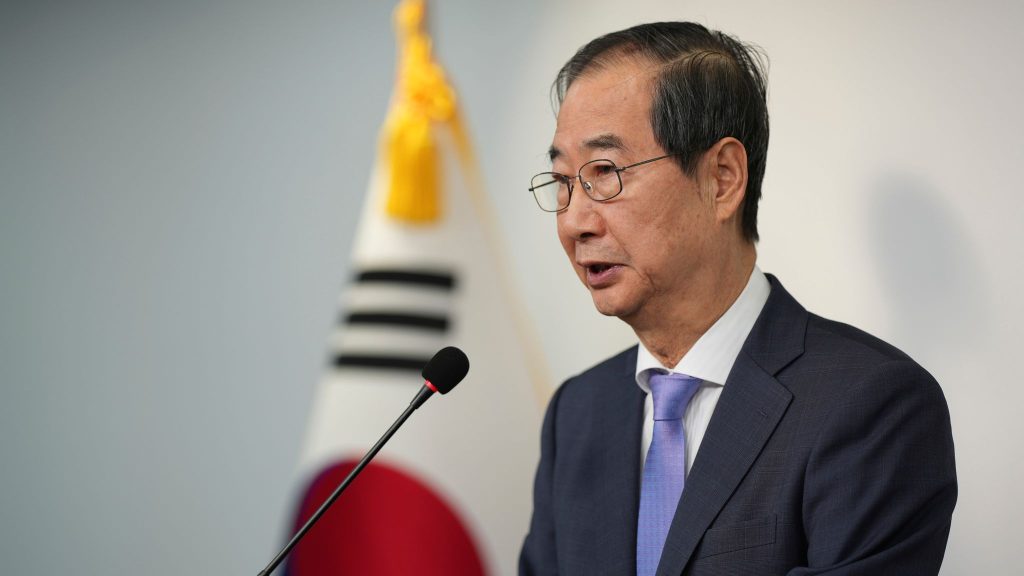
South Korea’s parliament voted overwhelmingly on Friday, December 27, 2024 to impeach acting President Han Duck-soo, escalating a constitutional crisis sparked by a brief period of martial law under former President Yoon Suk Yeol.
The impeachment motion, passed with a 192-0 vote in the 300-member parliament, comes amid a standoff over judicial appointments. Opposition lawmakers accused Han of stalling the appointment of three justices to South Korea’s Constitutional Court, despite their approval by the Democratic Party-dominated parliament. Han had insisted on bipartisan agreement before formalizing the appointments.
In his statement after the vote, Han announced he would step aside to prevent further chaos, stating, “I respect the decision and will await the Constitutional Court’s ruling on the impeachment motion.” Finance Minister Choi Sang-mok is set to assume the role of acting president in the interim.
The controversy centers on the Constitutional Court, which requires six of its nine justices to agree to remove an impeached president. With only six justices currently seated, any decision to remove Yoon Suk Yeol, who is on trial following his ouster, would need to be unanimous.
Opposition leader Lee Jae-myung defended the impeachment, declaring it a necessary step to dismantle what he described as networks supporting “insurrection.”
The crisis adds to South Korea’s political turmoil as the court prepares to deliberate with its reduced bench, further testing the resilience of the nation’s democratic institutions.







